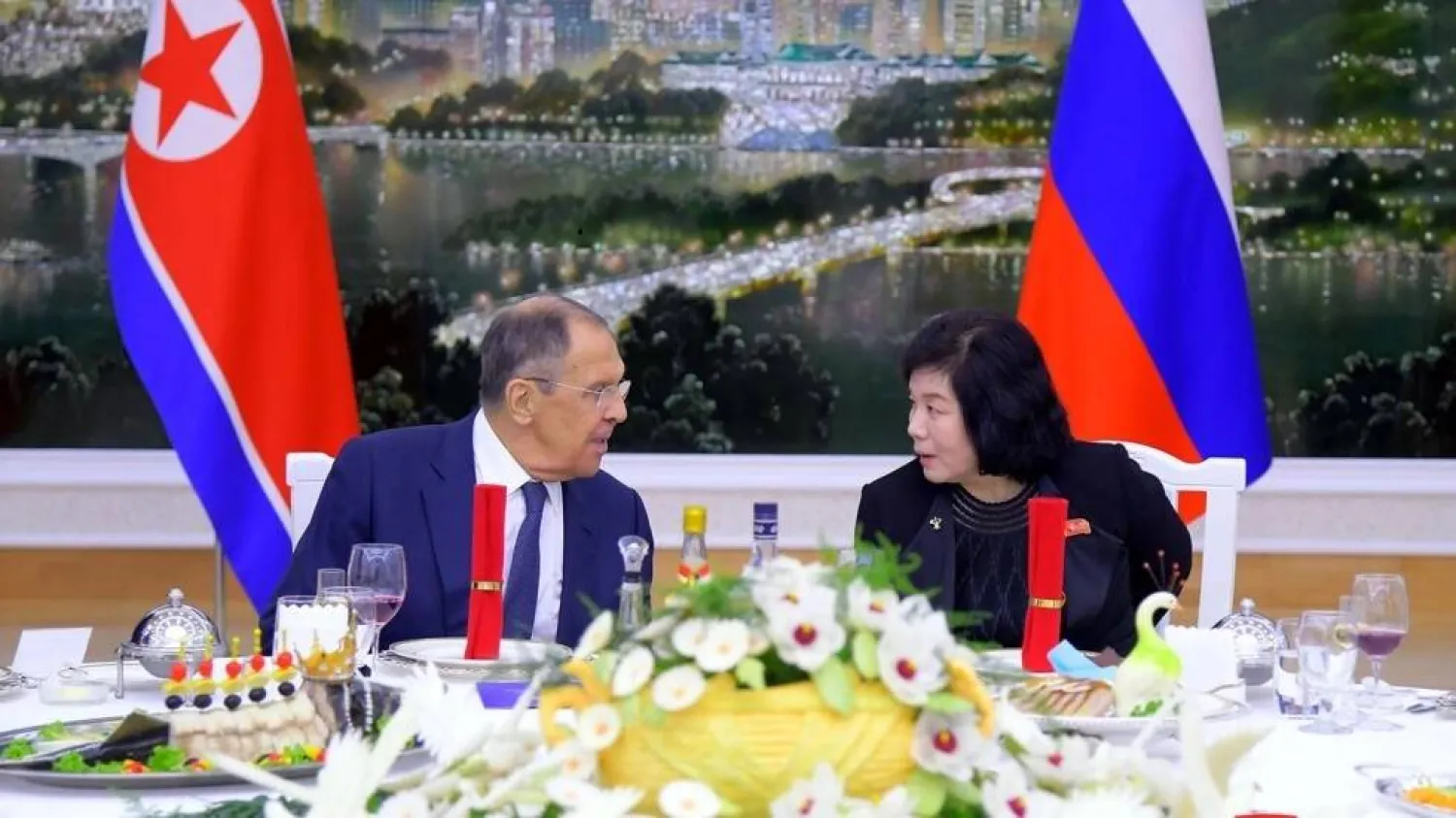Russian Foreign Minister Sergei Lavrov slammed US policy towards North Korea as "dangerous" during a visit to Pyongyang Thursday, while touting the "new, strategic level" of relations between Moscow and the nuclear-armed state.
The veteran envoy's two-day visit is expected to lay groundwork for a trip to the country by Russian President Vladimir Putin, who was invited by leader Kim Jong Un last month at a high-profile summit in Russia's far east, said AFP.
"Like our North Korean friends, we are seriously worried about the intensification of military activity of the United States, Japan and South Korea in the region and by Washington's policies... we oppose this unconstructive and dangerous line," Lavrov told journalists, according to Russian news agencies.
"We oppose this unconstructive and dangerous line," he said, adding that the United States was placing "strategic infrastructure, including nuclear elements", in the region without elaborating.
In the face of a record-breaking series of weapons tests by Pyongyang this year, Seoul has moved to strengthen its security relationship with traditional ally the United States while entering a trilateral defense arrangement that also includes Japan.
Seoul and Washington have staged joint military exercises with advanced stealth jets and US strategic assets, while an American nuclear-armed submarine in July made a South Korean port call for the first time in decades.
A B-52 bomber capable of carrying a nuclear payload currently sits at Cheongju airport, about 100 kilometers (62 miles) south of Seoul, marking the first time one has landed in the country since at least 2000.
Local media reports this week said the bomber would take part in a joint aerial drill near the Korean peninsula on Sunday that would involve South Korea, the United States and Japan.
But North Korea's relationship with Russia has also been tightening, Lavrov said Thursday.
"After the landmark summit... we can say confidently that relations have reached a qualitatively new, strategic level," Lavrov reportedly told North Korean Foreign Minister Choe Son Hui at a meeting.
Moscow is also keen to assist North Korea with its energy needs, a constant source of struggle for heavily sanctioned Pyongyang, he told Russian outlets.
"There is geological exploration, there are also plans for the supply of energy resources and other goods that our friends from the DPRK need," Lavrov said, using the acronym for North Korea's official name.
Both energy issues would be discussed at a joint meeting slated for November, he added.
Lavrov, who laid wreaths at monuments to former North Korean leaders Kim Sung Il and Kim Jong Il in the morning, arrived in Pyongyang on Wednesday night after accompanying Putin on a trip to Beijing.
At a welcome dinner, he praised Pyongyang’s support for Russia's ongoing war in Ukraine.
"We highly value your principled, unambiguous support for Russia's actions in connection with the special military operation in Ukraine," Lavrov was quoted as saying by Russia's RIA Novosti news agency.
Weapons transfers
Kim last month traveled to Russia aboard a specially built bullet-proof train for a face-to-face meeting with Putin, declaring bilateral ties with Moscow his country's "number one priority".
The two leaders met at Russia's Vostochny Cosmodrome, roughly 8,000 kilometers from Moscow, a location seen as symbolic given North Korea's space aspirations.
The September summit fanned Western fears Pyongyang might provide Moscow with weapons for its drawn-out war in Ukraine.
On Friday, the United States said arms shipments were already under way, with North Korea delivering more than 1,000 containers of military equipment and munitions to Russia in recent weeks.
According to a graphic provided by the White House, a load of containers was shipped by sea from North Korea to Russia between September 1 and October 1.
They were then delivered by rail to an ammunition depot about 290 kilometers from the Ukrainian border.
Pyongyang was seeking a range of military assistance in return, including advanced technologies, White House national security spokesman John Kirby told reporters.
Moscow this week denounced the allegations, insisting Washington had no proof that weapons were being shipped.









